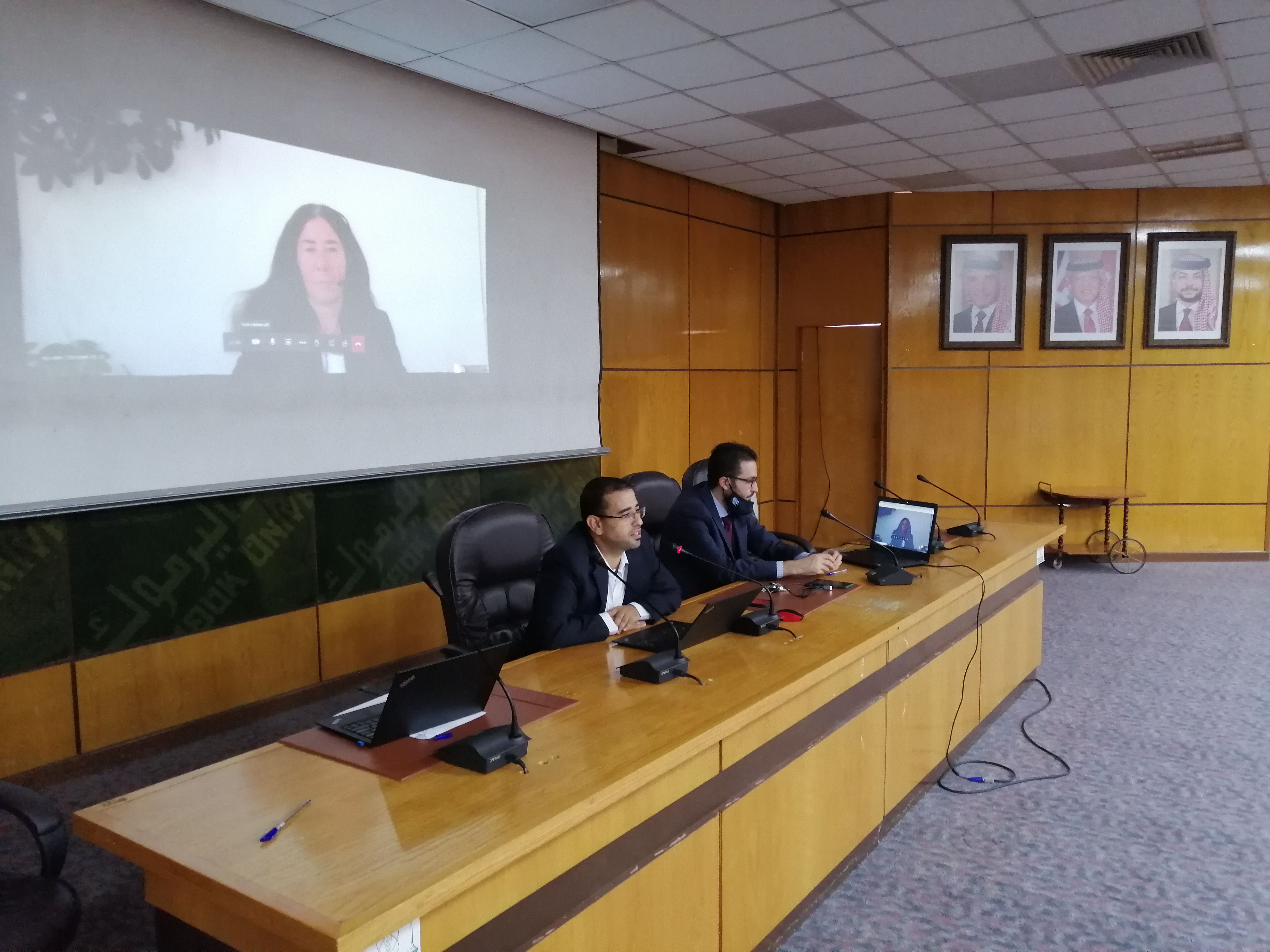
|
The Center of Refugees, Displaced Persons and Forced Migration studies at Yarmouk University, in partnership with the German Development Agency for International Cooperation (GIZ), has completed the third phase of the psychosocial support project, which is an advanced training course on the subject of psychosocial support in the context of forced migration. This course aimed to provide a training opportunity on the subject of psychosocial support for Syrian refugees and the host community (the Jordanian community), and to enhance competencies in the same field for graduates in order to enable them to provide psychosocial support services in an efficient manner, through which the psychological resilience of migrants, refugees and society is strengthened. The host. The course lasted for six weeks from 23-8-2020 until 1-10-2020, with four weeks of academic teaching, including four days of internal sessions and one day of online courses every week, followed by two weeks of field training in one of the organizations that provide Psychosocial support services, and theoretical training collected a mixture of theoretical and applied inputs that were provided by specialists in the fields of forced migration, refugee studies and related to psychosocial support, as the course included four comprehensive modules to cover different aspects of refugee issues and keep abreast of technological developments: • The first Module: Introduction to psychosocial support in the context of asylum. • The second Module: Psychosocial support services for individuals, families and society. • The third Module: Effective communication and conflict resolution. • The fourth Module: smart technologies used in the application of psychosocial support services. As for the practical part, it may be from several methods, including, for example, the blended learning method, which includes interactive activities such as role-playing and other interactive methods, in addition to that the participants apply their newly acquired knowledge and skills in field training in the host organizations to which they have been distributed, and they have also been visited from Dr. Alaa Al-Qudah, Deputy Director - Project Coordinator - accepted periodically to see the progress of the training process. The center had held an introductory day for the project participants, in the presence of representatives of associations and organizations, during which the director of the center, Dr. Anas Al-Subuh, confirmed that this project, in its third phase, is an opportunity for members of the local community, both Jordanians and Syrians, to acquire the basic skills necessary to deal with vulnerable individuals in the field of psychosocial support, and the possibility Providing them with the benefit that qualifies them to integrate into society, to be active members of society development. Al-Subuh added that choosing Yarmouk University to implement this project in its various stages confirms the confidence of international institutions and organizations in it because of its good reputation and distinguished position at the regional and global levels, and its academic and administrative competencies that qualify it for that. Dr. Christine from the German Agency for International Cooperation (GIZ) - Director of the Psychosocial Support and Trauma Program in Jordan - stressed the importance of holding the project in its third phase at Yarmouk University and her happiness with the partnership between Yarmouk and the German Agency and the extent of cooperation between the two institutions, which greatly contributed to its success. She provided an overview of the project experience in its first and second stages, the number of students who participated in it and the opportunities it provided to them in the field of the labor market. During the meeting, moderated by Dr. Alaa Al-Qudah, Deputy Director - Project Coordinator, the sixteen participants in the third phase of the project were introduced to all the details related to the training course in terms of the goals to be achieved and the benefit that accrues to them, and the time frame and duration of both theoretical and practical training. And to learn about the experience of the first and second stages and how the center works in partnership with the lecturers to continuously develop the training material to ensure its compatibility and compatibility with the developments in the field of psychosocial support. In the second part of the meeting, which was attended by the trained professors, a detailed explanation was given about the training course courses and what they include and each course aims for. Dr. Muawiya Khattabeh and Dr. Ruba Al-Akash spoke about the first course, "Introduction to Psychosocial Support in the Context of Asylum", and each of Dr. Ahmed Sharifin and Dr. Muayad Miqdadi for the second course "Psychosocial support services for individuals, family and society", Dr. Muhammad Alawneh and Professor Tareq Al Nasser for the third course "Effective Communication and Conflict Resolution", and Dr. Anas Al Sobh on the fourth course "Smart techniques used in the application of psychological support services." Social. " On the other hand, representatives of the associations and organizations expressed their thanks to Yarmouk University and its constant eagerness to partner with local and civil society institutions, in addition to their full readiness to cooperate in implementing the third phase of the project and to provide all the capabilities that would facilitate the students' mission and provide them with the necessary experience that helps them in dealing with various Cases. |

